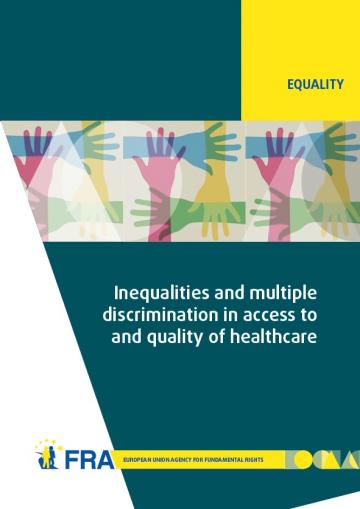
Inequalities and multiple discrimination in access to and quality of healthcare
Although awareness of this phenomenon of multiple discrimination is on the rise, EU law has yet to adequately address it. Current EU law provides better protection against discrimination based on race and sex than on grounds of religion or belief, disability, age or sexual discrimination, making it difficult to tackle multiple discrimination.
This research project aims to shed light on the experience of multiple discrimination in healthcare. It looks at how ‘multiple’ discrimination is legally addressed and examines relevant case law with a special focus on healthcare. It also explores healthcare users’ and professionals’ views and experiences on how people of different gender, age, disability and ethnic origin experience discrimination and multiple discrimination when accessing the health system. It found respondents had experienced unequal or unfair treatment in relation to access to and quality of healthcare, discusses a number of barriers they face and points to possible improvements.
See also the Q&A on multiple discrimination in healthcare.
 Also available in easy read format.
Also available in easy read format.